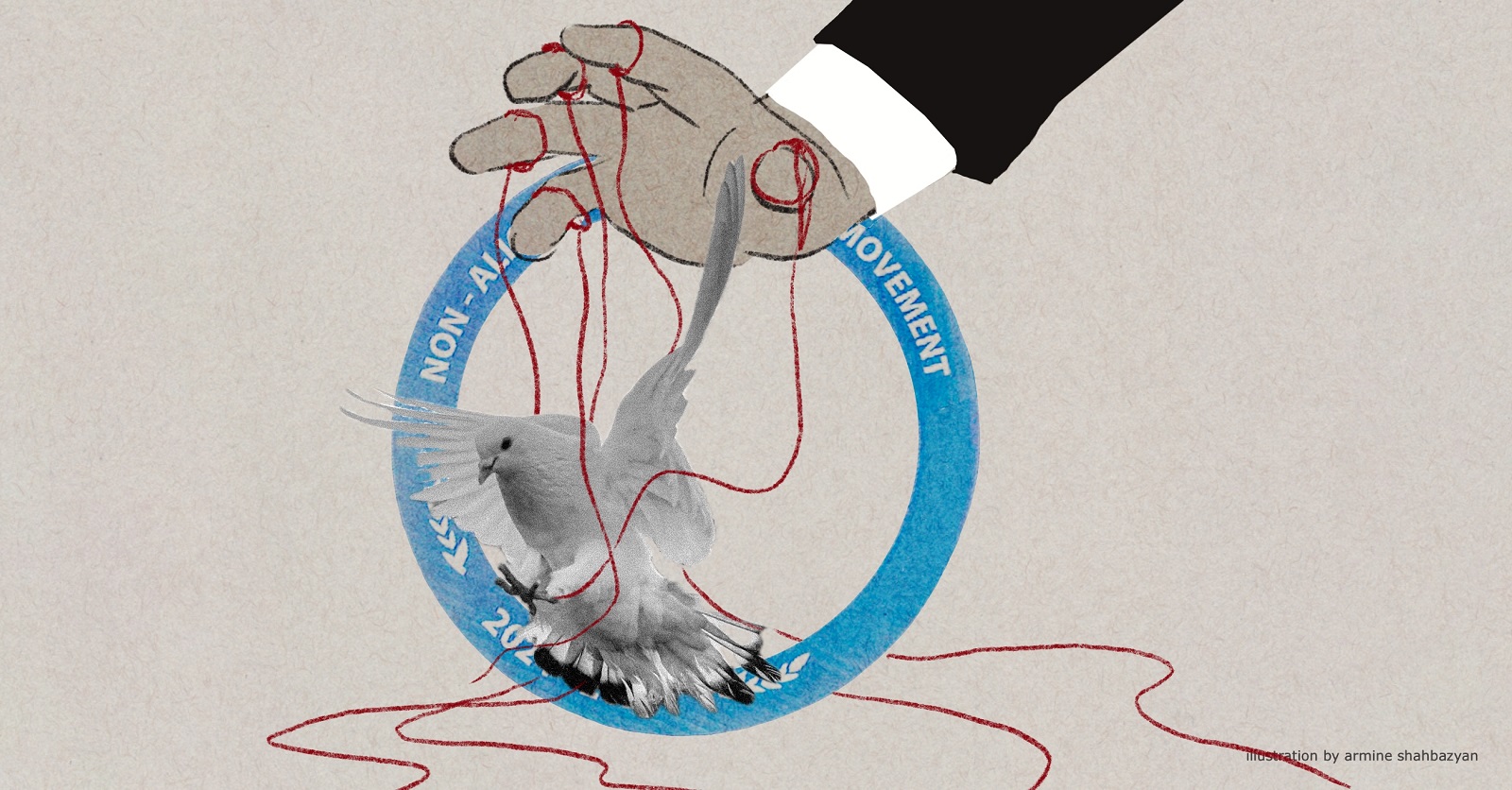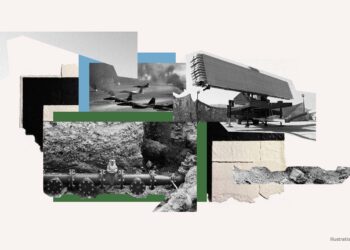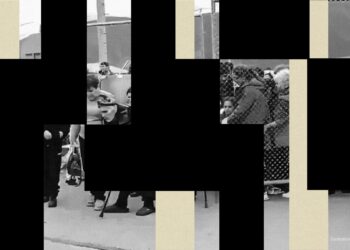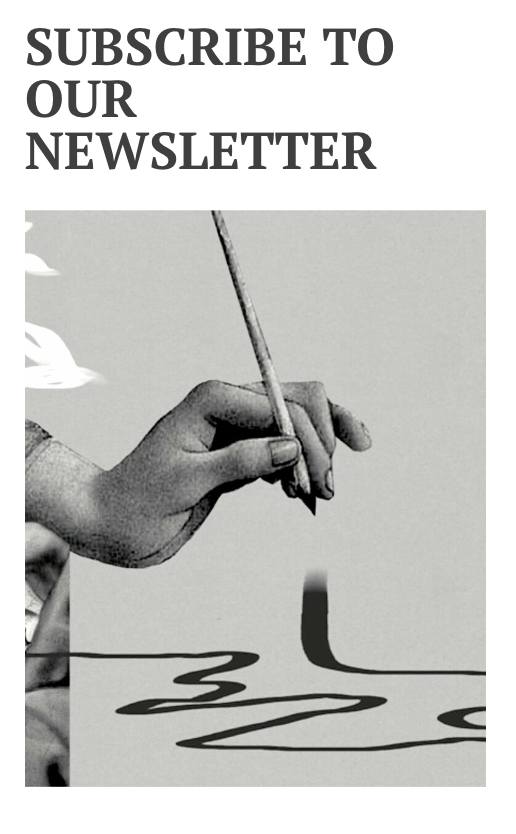
Listen to the article.
A previous article identified the strengthening of the France-Armenia partnership as a key factor in Azerbaijan’s escalating hostility towards France and tackled Azerbaijan’s and Russia’s Campaign of False Narratives in relation to it. This hostility eventually evolved into a hybrid war by Azerbaijan in the French overseas territories in the South Pacific, as well as Corsica in the French mainland.
The Misuse of the Non-Aligned Movement
Azerbaijan has a long-standing membership in the Non-Aligned Movement (NAM) based on its foreign policy of non-alignment and equal distancing. It held the chair of the movement from 2019 and 2023. The tenure coincided with its military campaign against Nagorno-Karabakh Armenians in 2020 and 2023, resulting in their full ethnic cleansing. It also coincided with its military offensives against Armenia and occupation of more than 200 sq/km of its border regions. In July 2023, Azerbaijan’s blockade of Nagorno-Karabakh Armenians reached a critical stage, with deliberate starvation and arbitrary detentions, drawing international attention. As a permanent member of the UN Security Council (SC), France had a lead role in convening SC meetings to address the situation in Nagorno-Karabakh and urging Azerbaijan to stop the blockade of Nagorno-Karabakh.
Azerbaijan used the NAM summit in Baku in July 2023 to whitewash the blockade and the subsequent military offensive that led to the dissolution of Nagorno-Karabakh (Artsakh Republic) as a de facto state and the ethnic cleansing of its Armenian population. Azerbaijani President Ilham Aliyev delivered a speech riddled with not only anti-Armenian but also more than 20 anti-French references. He notably accused Paris of “inflicting conflict” in the Caucasus and committing “most of the bloody crimes in the colonial history of humanity.”
AIR Center, a government-sponsored think tank headed by former Azerbaijani career ambassador Farid Shafiyev, famous for his anti-Armenian and anti-French propaganda, organized a roundtable titled “Towards the Complete Elimination of Colonialism” during the NAM summit. During this event, a statement was adopted and the Baku Initiative Group (BIG) was established “to support combatting colonialism and neocolonialism.” BIG then organized follow-up conferences on “decolonization” at the UN headquarters in New York in September and at the UN Office in Geneva in December 2023. Pro-independence activists from the French overseas territories argued against “French colonialism” at these conferences. Representatives of New Caledonia, French Polynesia, French Guiana, Martinique, and Guadeloupe, along with a representative of the Melanesian Spearhead Group, attended the event. A group of pro-Azerbaijani French nationals from mainland France also attended these meetings, reportedly at the request of Hikmet Hajiyev, foreign policy advisor to Azerbaijan’s President. BIG also held a conference on “Decolonization: Awakening of the Renaissance” in Istanbul in February 2024.
BIG also funds visits of delegations from French territories and organizes webinars with them. Despite its broad name, the group has focused solely on “decolonizing” French overseas territories, such as New Caledonia, French Guiana, French Polynesia, Martinique, and Guadeloupe. It does not mention overseas territories of the U.S., UK, Denmark and the Netherlands, or other territories and regions in Europe with aspirations of self-determination. Overseas territories are islands in the Atlantic, Antarctic, Arctic, Caribbean and Pacific regions. These are not sovereign countries, and they depend on the metropole state while having various degrees of autonomy. BIG supports “decolonization” of Corsica as well, largely ignoring entities in other European countries seeking self-determination. BIG also frequently discusses the legacy of French colonialism in Algeria and French peace operations in other African countries.
French Overseas Territories
In May 2024, France declared a state of emergency and imposed a curfew in New Caledonia or Nouvelle Calédonie in French, in response to a revolt by independence groups. The revolt was triggered by electoral reform and exacerbated by external interference. President Macron called it “an unprecedented insurrection movement.” He visited the territory on May 23 and met both with loyalist and pro-independence leaders. He announced that the planned voting reform, which would have added 25,000 voters who had lived there for 10 years, would not proceed. Instead, a new roadmap would be developed to form voter lists, potentially leading to a fourth referendum in New Caledonia.
The indigenous Kanak people constitute 40% of the territory’s population of 270,000. This territory became French in 1853 under Emperor Napoleon III. Residents of European heritage are divided into two groups: descendants of the colonizers and recent settlers from mainland France. Tensions between loyalists and independence advocates existed in New Caledonia for decades. The crisis in the 1980s led to the Matignon (1988) and Noumea accords (1998). These accords aimed to promote equal socio-economic conditions for the communities and develop a 10-year transitional autonomous status for the territory. Referendums on self-determination were held in 1987, 2018, and 2020-2021, with votes against independence and a boycott of pro-independence groups in 2021.
On April 29, France’s Interior Minister Gérald Darmanin condemned what he called “extremely harmful interference” while addressing the Law Committee of the National Assembly. Despite suspicions about Russian, Chinese, and Turkish involvement, the preponderance of evidence suggests a systematic intervention by Azerbaijan. In a TV interview, the Minister stated that “it’s a fact and not a fantasy”, that some of the pro-independence leaders in the territory have ties with Azerbaijan.
Azerbaijan’s Foreign Ministry rejected these accusations as “defamation”, simultaneously echoing anti-French narratives propagated by Azerbaijani authorities.They claimed that France’s “failed policy” towards the overseas territories has led to protests.
French intelligence had been reporting on Azerbaijan’s detected activities in New Caledonia for months. In December 2023, two journalists from the Azerbaijani state news agency AZERTAC were denied entry into New Caledonia. They were there to cover a rally during the visit of French Defense Minister Sébastien Lecornu, allegedly “with an anti-France angle”. AZERTAC denounced the denial as a restriction of freedom of speech and expression “about the struggle for freedom and independence intensifying in New Caledonia and other French colonies.”
At the rally on March 28 of the protest movement, Azerbaijani flags and portraits of Azerbaijan’s President Aliyev were featured on the podium of the speakers. Protesters were also wearing t-shirts with anti-colonial slogans with the logo of Baku Initiative Group (BIG). BIG openly welcomed the protest movements in the French overseas territories. Executive Director of BIG Abbas Abbasov noted that local NGOs that BIG works with have raised Azerbaijani flags on their own initiative.
David Wanabo, a member of the New Caledonia delegation and Deputy Secretary General of the Caledonian Union Party, had attended yet another conference hosted by BIG and met members of Azerbaijan’s parliament in October 2023. According to Azernews, Wanabo stated in Baku that “France is pursuing a colonial policy under the cover of human rights.” On April 18, Omayra Naisseline, a pro-independence member and a Committee Head of the Congress of New Caledonia visited Baku, funded by Azerbaijan, and was received by the Speaker of Azerbaijan’s parliament. The legislator signed a memorandum to establish bilateral relations with Azerbaijan’s parliament and thanked Baku for its support on their “path towards independence”. The President of the Congress Roch Wamytan defended her against allegations of enabling foreign interference in France’s internal affairs and actions bordering on treason, stating that Azerbaijan “defends international law” and helping in building an international network for New Caledonia.
A fact-sheet from VIGINUM, a French service responsible for foreign digital interference and disinformation, reported a coordinated and widespread disinformation campaign by Azerbaijan concerning the situation in New Caledonia. The digital interference was conducted through social media by users associated with Azerbaijan’s Presidency. They used the headline “French police guilty of murder in New Caledonia” and the following hashtags: #NouvelleCalédonie #RecognizeNewCaledonia #EndFrenchColonialism #FrenchColonialism #BoycottParis2024 #Paris2024.
The Azerbaijani propaganda machine reacted to the management of the “anti-colonial uprising” in New Caledonia, accusing France of declaring a state of emergency, “deploying the army” and “suppressing New Caledonia’s longstanding quest for independence and self-sufficiency.”
The state of emergency in New Caledonia was declared following the deaths of four indigenous Kanaks and two members of the French special forces. Many others were injured, property and infrastructure were looted and destroyed, causing hundreds of millions of euros in damage and the evacuation of tourists. This crisis was the worst in the territory since the 1980s. The declaration of the state of emergency was proportionate and in line with the French constitution. Similar measures were applied in Paris after terror attacks in 2015, and on earlier occasions in mainland France. France did not deploy the army but sent reinforcements for the local police and gendarmerie.
Azerbaijan’s interference extends beyond New Caledonia to other French overseas territories. Local parliament members from the Antilles and Guyana have visited Baku at the invitation of BIG. On May 1, the Polynesian independence movement, Tavini Huiraatira, signed a memorandum with Azerbaijan’s parliament and on May 30, welcomed a delegation consisting of the Chairs of the Commissions of the Polynesian Parliament and members of the ruling party for a conference titled, “Right of the French Polynesia for Decolonization”.
Radical Azerbaijani MP Tural Ganjali, known for his anti-Armenian propaganda and claiming to represent “Khankendi” (Azerbaijani name for Stepanakert, the capital of formerly existing Nagorno-Karabakh), tweeted that Maohi Nui (the indigenous name for French Polynesia), like all indigenous peoples, has the right to determine its own future and “not be dependent on some capital which is 16,000 kilometers away”.
A visit to Azerbaijan’s Media Development Agency was arranged during which the parties discussed joint media projects and “capacity-building” activities. Official press releases about these events were circulated in the Azerbaijani media with tags #decolonization, #politiquefrancaise, #politiquecolonialefrançaise and #frenchcolonialism.
Mā’ohi Nui (French Polynesia), formerly Tahiti, became a French protectorate in 1842 and an Overseas Collectivity of France in 2004. Its population is 283,000, with 80.6% being Polynesians, 13.3% Europeans, and 5.4% Asians. It maintains a degree of political autonomy within the French Republic, having its own government and legislature that are no longer controlled by the French State.
Azerbaijani MPs, government-sponsored think tanks, experts, and media express their complicity in the developments in New Caledonia in a performative manner. Rusif Huseynov, the director of the government-sponsored Topchubashov Center, has promised to provide regular updates on Azerbaijan’s “pivot” to the Pacific, in addition to updates on Azerbaijan’s “pivoting” in the Balkans and Central Asia.
Azerbaijani propaganda presents their position either as support for self-determination and the anti-colonialist movement or as retaliation against France for its support of Nagorno-Karabakh Armenians and Armenia. They argue that France supported Nagorno-Karabakh Armenians by recognizing them in their legislature. They also point to the visits of French lawmakers to Nagorno-Karabakh before the 2020 war.
Azerbaijan employs other state-sponsored NGOs to articulate broader anti-French narratives. The “Western Azerbaijan Community” organization, established to assert that Armenia is a pseudo-state — and “Western Azerbaijan” — issued a strongly worded statement in response to the resolution adopted by the French Senate on January 17, 2024. This statement is a conglomeration of multiple anti-French narratives, accusing France of various offenses. Beyond the typical accusations of colonialism, it also charges the French Senate with racism, Islamophobia, and Azerbaijanophobia. It labels French MPs as “modern crusaders” and asserts that “Azerbaijan doesn’t require permission to conduct military operations on its sovereign territory.”
Corsica
Baku has also included Corsica, an island off the French mainland, as part of its “decolonization” agenda. It has urged France to grant independence to Corsica through parliamentary and propagandist channels. In October 2023, the Azerbaijani parliament created a support group for the people of Corsica, publishing a communique in February 2024. This communique supports their “struggle for independence” and denounces “the Macron Dictatorship”.
The Collectivity of Corsica is one of France’s 13 metropolitan (i.e. non-overseas) regions with a population of 355,528. It enjoys an ad hoc status which grants the island more autonomy than any other French metropolitan region. Its Executive Council and Assembly (Parliament) have extended powers in comparison with other collectivities. Corsica has its own flag, coat of arms and anthem, and even without an official status, the Corsican language is used by local institutions. There is a movement in Corsica advocating for greater autonomy, acknowledgment of the Corsican language as official, and devolution of more political powers from the French central State. Besides, there is a separatist National Liberation Front of Corsica (FLNC) demanding independence from France.
Political consultations have been initiated between the French central government and Corsican local representatives to define a new framework for extended Corsican autonomy. The outcome of these discussions should meet the main expectations of the movement in Corsica advocating for greater autonomy.
The French Government is currently finalizing a status plan providing a higher level of autonomy for Corsica. President Macron has set a six-month deadline to find a solution that would allow the island “a form of autonomy”. Interior Minister Darmarin mentioned that the French government and elected officials of Corsica have agreed on a wording to be added to the Constitution. This amendment, which will need to be approved by each chamber of the French Parliament and then by a 60% majority by both chambers, is expected to recognize a status of autonomy for Corsica as a “historic, linguistic and cultural community.”
Ironically, the Assembly of Corsica has adopted a resolution recognizing the independence of the Republic of Artsakh (the Armenian name for the de facto state of Nagorno-Karabakh). The resolution condemns Azerbaijan for military aggression and accuses it of serious violations of international humanitarian law against Armenians during the final week of Azerbaijan’s 44-day war against the territory on November 6, 2020.
Cognitive Dissonance With Azerbaijan’s Self-Determination and Anti-Colonialism
Azerbaijan is framing France as a colonial power that suppresses the self-determination and independence desires of indigenous people in its overseas territories and Corsica. Despite the complete ethnic cleansing of Armenians in Nagorno-Karabakh, Aliyev has labelled France as politically hypocritical. He says that while France “violently suppresses” self-determination movements in its overseas territories and Corsica, it supports the “self-determination” of Armenians in Karabakh and backs “separatist and terrorist Armenians in Azerbaijan.” Aliyev has gone further to mockingly suggest that Karabakh Armenians could establish their republic in France, such as in Marseille where many Armenians reside.
The origins of the Nagorno-Karabakh conflict date back to the 20th century. At that time, the historically Armenian region of Artsakh, populated predominantly by Armenians, was incorporated into Soviet Azerbaijan as the Nagorno-Karabakh Autonomous Oblast/Region (NKAO) in 1920. Throughout 70 years of the Soviet period, Nagorno-Karabakh maintained its local self-governance institutions. However, the Azerbaijani SSR implemented oppressive policies against the Armenian population.
Azerbaijan contends that local Armenians lived contentedly in Soviet Azerbaijan until they initiated a “separatist movement” instigated by political elites and supported by Armenia. In reality, as a 1977 article in The New York Times shows, Armenians experienced “cultural oppression, economic discrimination and other ethnic disadvantages” under Soviet Azerbaijan’s administration, leading to their liberation movement in 1988. One of the main reasons for the start of the self-determination movement in 1988, besides suppression of their rights, was the attempt of Azerbaijani authorities to alter the region’s demography through Azerbaijani settlers during the Soviet period. As Azerbaijani scholar Bahruz Samadov has tweeted, “one symptomatic thing with Azerbaijan’s New Caledonia obsession is that New Caledonia’s Kanaks now and Nagorno-Karabakh’s Armenians in the past share the same anxieties: demographic changes caused by migration from the central state.”
In 1988, the Armenians of Nagorno-Karabakh, who constituted 86% of the population and are indigenous to the territory, began their self-determination movement, Azerbaijan responded with massacres, deportations, and military operations. The Azerbaijani government not only rejected their aspiration for independence but also aimed to exert direct control over the territory. After the regional parliament’s resolution in 1988, Azerbaijan passed a law abolishing the Nagorno-Karabakh Autonomous Oblast. This followed a referendum in 1991, where the overwhelming majority of the population voted for independence.
Rather than acknowledging that the forced handover of Armenian-majority Nagorno-Karabakh to Soviet Azerbaijan by the central Soviet Russian-ruled authorities was a form of colonialism, Baku claimed that the Nagorno-Karabakh Autonomous Oblast (NKAO) was an artificial entity created by the Soviet authorities.
Over 27 years of negotiations regarding the Nagorno-Karabakh conflict, Azerbaijan rejected most of the plans proposed by the OSCE Minsk Group that included granting an interim status to the territory and holding a referendum to determine its final status.
Following its military victory in the 2020 war, Azerbaijan refused to consider any form of autonomy or self-governance for Nagorno-Karabakh Armenians, declined to recognize Nagorno-Karabakh as an entity and even banned its name. Baku maintained that Azerbaijan is a unitary state, and Armenians would not be granted any special status and would be treated like any other citizens of Azerbaijan, in line with its constitution. It decided to dissolve Nagorno-Karabakh into a larger Karabakh economic region, with the aim of transforming local Armenians from a majority to a minority, dismantling their self-governance institutions, and establishing full, direct political control over them. Azerbaijan did not offer any governance models or guarantees for political rights and civil liberties for Nagorno-Karabakh. Baku labeled this policy as “integration”, casting their approach in a positive light for Western democratic countries.
However, in the context of Nagorno-Karabakh, the term “integration” implied subjugation and the deprivation of ethnic identity at best. Azerbaijan is widely recognized as one of the most autocratic countries in Eurasia, with an abysmal human rights record, no political or civil liberties, even for ethnic Azerbaijanis, and state-level incitement of ethnic hatred towards Armenians. Azerbaijani propaganda has been employing historical revisionism, claiming that Armenians, the indigenous people of the territory, are newcomers, and labeling them illegal migrants, occupiers, and even terrorists.
Moreover, all indications suggest that Azerbaijan’s real objective was the de-Armenization of Nagorno-Karabakh and conquest of the territory without its Armenian population. To achieve this, Azerbaijan subjected Nagorno-Karabakh Armenians to collective punishment for their aspirations of self-determination. Azerbaijan’s use of a broad range of hard and hybrid tactics, including military offensives, war crimes, blockade, weaponization of humanitarian aid, deliberate starvation, and energy deprivation, led to the complete abolition of self-governance institutions in Nagorno-Karabakh and full ethnic cleansing of Armenians from their native land.
Conclusion
Azerbaijan’s exploitation of aspirations for self-determination by independence activists in the French overseas territories and Corsica represents a method of hybrid warfare and is fully manipulative. New Caledonia and Corsica have varying degrees of autonomy and self-governance in France, and France has systematically adjusted its policies to address concerns in these entities. France has considered granting greater degrees of autonomy, which is currently in the finalization stage in Corsica, and authorized independence referendums leading to the vote for staying under the jurisdiction of France in New Caledonia. Azerbaijan has outright rejected the self-determination aspirations of Nagorno-Karabakh Armenians, abolished their autonomy in response to them in the beginning of the conflict, refused any level of autonomy to them since it realized it can achieve control through military means, abolished their self-governance institutions, and launched military offensives and a blockade to achieve their full ethnic cleansing.
Thus, by manipulating self-determination aspirations and inciting anti-colonial sentiments in French overseas territories and Corsica, Azerbaijan is aiming to:
- Harass France, a permanent member of the UN Security Council, and a major EU and NATO state, aiming to neutralize its support for Armenia and criticism of Azerbaijan’s brutal oppression of self-determination aspirations of Armenians in Nagorno-Karabakh, and ensure impunity for its military offensives, blockade and violations of international humanitarian law in Nagorno-Karabakh;
- Retaliate against France for its support for Armenia and criticism of Azerbaijan. While the EU and U.S. have been targeted by Azerbaijan as well, they have shaped their position in light of the current reality that Azerbaijan has secured military victory against Armenians, and have taken into account the balance of power advantageous to Azerbaijan. The French position has been stronger and more vocal, based on the notion expressed by President Macron in relation to the current attempts of autocracies to promote their objectives through the use of force: “Peace is not the capitulation of those who are attacked, it is respect for the international order and the Charter of the United Nations”;
- Position itself as a middle-power that can challenge policies and even sovereignty of such a major state as France;
- Similar to Russia, Turkey and other illiberal actors, contest the international governance system.
This doesn’t exhaust the coverage of Azerbaijan’s hybrid war against France. Azerbaijan manipulates anti-colonial resentment against France in several African countries, using tactics and narratives similar to those employed by Russia to increase its influence in Sub-Saharan Africa. This strategy promotes the role of Wagner instead of the peacekeeping role by France, the UN and potentially also the EU. Azerbaijan also uses the heritage of the French-Algerian war and criticizes France for its domestic policies. These issues will be addressed in subsequent articles.
Also see
Azerbaijan’s and Russia’s Campaign of False Narratives Against the France-Armenia Partnership
The deepening France-Armenia partnership has spurred Azerbaijan’s disinformation campaign against France, escalating into a hybrid war. Sossi Tatikyan debunks these narratives, revealing their striking commonalities with Russian tactics.
Read moreHungary: Baku’s Friend in Brussels
Hungary recently blocked EU assistance to Armenia through the European Peace Facility, yet another move highlighting its strategic alignment with Azerbaijan, from supporting Baku's actions in Nagorno-Karabakh to blocking EU statements condemning them to extraditing a convicted murderer more than a decade earlier.
Read moreAzerbaijan-Israel Relations: Implications for Armenia
The deepening alliance between Azerbaijan and Israel carries significant implications for Armenia, notably Azerbaijan's considerable acquisition of advanced Israeli weaponry which it has extensively employed against Armenian forces in the past decade.
Read moreHow Azerbaijan Deceives and Harasses the International Community
Azerbaijan has been using military and diplomatic coercion to achieve its maximalist and expansionist objectives, employing wide-ranging tools of hybrid war while also deceiving and harassing international actors. Sossi Tatikyan explains.
Read moreRecently Published
EVN Security Report: May 2024
Armenia must utilize the concept of de-hybridization to mitigate Azerbaijan’s non-linear warfare, which ranges from kinetic diplomacy to complex hybrid operations. Nerses Kopalyan explains what a strategy of de-hybridization for Armenia should look like.
Read moreBeyond Church or State: Towards a Progressive Opposition
Opposition movements linked to the Church and former regime figures can potentially threaten Armenia's struggling democracy. Garren Jansezian argues that progressive alternatives to both the governing elite and the opposition are needed now more than ever.
Read moreTavush Region: Land and Border Challenges
Many, including those outside Armenia, are unclear about the situation of maps and borders in Tavush region. In the midst of uncertainty and misinformation, respected cartographer Rouben Galichian breaks it down.
Read moreThe Challenge of a Sacred Union
Archbishop Bagrat Galstanyan, leader of the "Tavush for the Homeland" movement, is advocating for resistance against the government's peace policy. Blending patriotism, spirituality and disobedience, his aim is to restore national morale. But can he succeed? Tigran Yegavian’s analysis.
Read moreArmenia’s Commitment to Remembering the Yezidi Genocide
A crucial step in helping to prevent future genocides includes commemorating genocides and remembering their victims. The Armenian government recently designated August 3 as Yezidi Genocide Commemoration Day, becoming one of the first countries in the world to do so.
Read moreGenocide 2.0: Old Threats, New Delivery?
Davit Khachatryan focuses on the changing dynamics surrounding genocide, particularly in light of modern warfare tactics and weaponry, emphasizing the importance for Armenia to be vigilant in response to emerging threats.
Read moreEthnic Cleansing, Genocide or Displacement?
This article explores the most accurate term to describe the de-Armenization of Nagorno-Karabakh by comparing various perspectives and examining the legal and political applicability of these terms.
Read more












